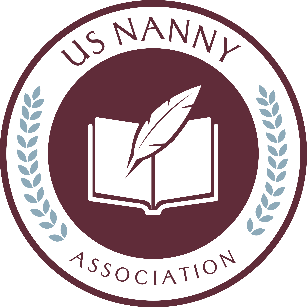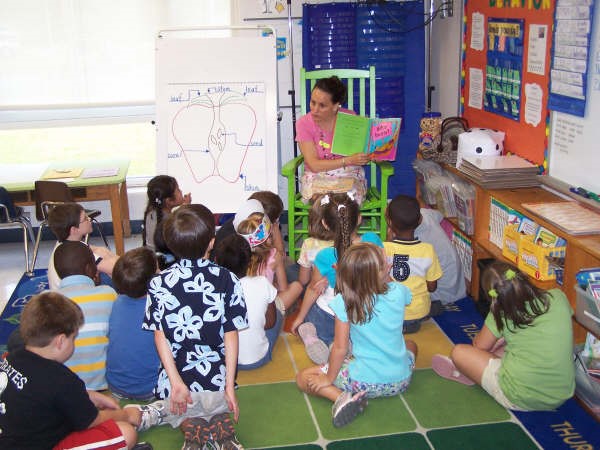Summertime means a break from routine. Less time spent in childcare or pre-school, a relaxing of bedtime, visits to grandparents and cousins. These are all valuable and restful experiences for young children, or at least they can be if you plan well! But there is one school-rule that you should not ignore during your child’s time away from the classroom – summer reading.
Read every day!
A German proverb that I stumbled on says it nicely: “Little and often makes a lot in time.” Just a little time spent with books, every day of the year, will produce a child who reads well, speaks fluently, scores nicely on standardized tests, and thinks clearly. That’s a pretty significant payoff for a small investment, don’t you think? Use this pull-out for ideas for each of the 12 weeks of summer. Most of all, have fun together with books.
June, Week One
Join a story hour or book club at the public library. Decorate a special tote bag for your child to use just to hold his or her library books. Try puff paints, glitter, and felt to create a nifty tote that will keep your library books dry and separate from other books.
June, Week Two
Read The Never Forgotten Doll from the series ”Chicken Soup for Little Souls”. Summertime offers quiet one on one time in which parents and children can talk about values and virtues, which is what this book and others in the series showcases. Visit a rest-home together and drop off magazines and large-print books that older folks might find entertaining.
June, Week Three
Check out a book about cooking from the library. Pick out a simple recipe and make it together. Here’s one to start with. It is lowfat and easy enough for a four-year-old to handle. 1) Select a reduced-fat cookie crust. 2) Mix 1 eight-ounce whipped topping (fat free) with 2 small containers of any flavor yogurt. 3) Pour into cookie crust 4) Decorate with fruit, sprinkles, or jellybeans. My favorite: coffee yogurt with chocolate chips! My children prefer strawberry yogurt with rainbow sprinkles!
June, Week Four
Make a pitcher of lemonade and sit on the porch together to read from The Children’s Book of Verse, a collection of classic verse by Exter Books, with illustrations by Eileen Fitzpatrick Berry. My favorite: “The Land of Storybooks” by Robert Lewis Stevenson.
July, Week One
Visit the library to find a book that contains authentic reproductions of the Declaration of Independence. Let your child examine the print and talk about some of the “funny words”. The message is that we celebrate the 4th of July for a reason…. our freedom from tyranny!
July, Week Two
Read the pop-up book, How Many bugs in a Box? This neat, interactive counting book by David A. Carter is delightful, and teaches important basic counting skills. One night, look for fireflies and save them in a jar, just for a little while. Count them and then let them go.
July, Week Three
Collect a few post cards from your hometown. Read about the historic sites or the beautiful garden or the biggest watermelon ever grown. Let your child know that your town is important! Let your child start a postcard collection, slipping them into photo-sleeves in an album and writing down the date of the acquisition! Put out the word that your child is a collector and watch his or her delight as the daily mail arrives.
July, Week Four
Read the Caldecott award-winning Miss Rumphius, by Barbara Cooney. The artwork is incredible, that’s why it snagged this prestigious award, but the message is equally compelling. How can we make the world a more beautiful place?
August, Week One
Start reading aloud from the chapter book, Charlotte’s Web or Babe the Gallant Pig. Read a chapter each day of the month, and then celebrate with popcorn and a home video of the story at the end of the month.
August, Week Two
Sit outside in the evening a watch the phases of the moon together. Ask children to express their observations verbally or to keep a simple science notebook with pictures of what they see. Read aloud from the picture book Happy Birthday Moon, by Frank Asch.
August, Week Three
Select a classic fairy tale such as “Goldilocks and the three Bears” or a folktale from a culture that your family enjoys learning about and read the story together. Then, make spoon puppets of some of the characters. I like to go to the “dollar store” and pick up a pack of wooden spoons, craft materials and glue for this project. You can probably find what you need in your own kitchen or garage. Dry pasta makes great hair or bowties for spoon puppets!
August, Week Four
Celebrate the last week of summer with a reading of Eric Carle’s The Very Quiet Cricket. If you live in the city, you might have to use your imagination, but in the suburbs or country, cricket music abounds in late summer. What do you think the crickets are saying….could it be “goodbye summer”?
About the Author: Dr. Linda Karges-Bone is the author of 34 books including “Rich Brain, Poor Brain: Bridging Social and Synaptic Gaps in Schools” and has given keynotes and training in 45 states. Her consulting firm “Education InSite” is a leader in educational training. www.educationinsite.com.
If you would like additional information on the benefits of summer reading, you can learn more about ways to reduce the summer slide. If you are interested in learning more about how to build a summer schedule, you can enroll in the Professional Nanny program at the Nanny Institute which is approved for the US Nanny Association Certified Professional Nanny Credential.

